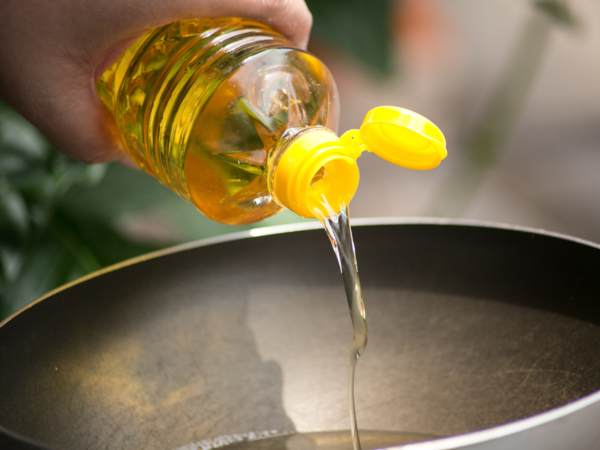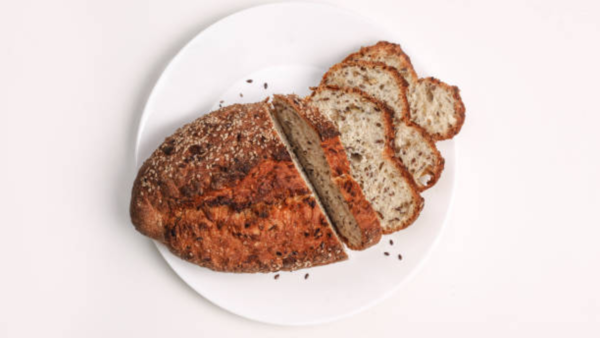While diligently reading food labels is a commendable practice, it's often insufficient to safeguard your well-being. Many seemingly innocuous store-bought foods harbor hidden ingredients that pose significant health risks. Here's a breakdown of everyday additives that could be wreaking havoc on your health:

Food dyes are ubiquitous, coloring everything from candies to flavored rice. While these synthetic dyes enhance the visual appeal of food, their potential health consequences are alarming. Artificial food dyes, such as Red 40 and Yellow 5, have been linked to neurobehavioral issues, especially in children, with studies suggesting a correlation with increased hyperactivity. The FDA recently banned Red No. 3, a dye used to impart a bright cherry-red color to foods and beverages, due to its association with cancer. Yet, this dye remains in use in several countries.

Many foods owe their appealing appearance to titanium dioxide, a chemical used to whiten products like coffee creamers, candies, sunscreen, and toothpaste. However, the FDA classifies this chemical as a Group 2B carcinogen. The nanoparticles present in titanium dioxide can trigger inflammation and oxidative stress within the body.
Brominated vegetable oil (BVO), an emulsifier used to stabilize citrus-flavored drinks and prevent flavor separation, also raises concerns. Studies have linked BVO to neurological problems, thyroid dysfunction, and damage to the heart and liver. Although banned in Europe, BVO remains in use in several countries.

Potassium bromate, a flour additive used in bread-making to strengthen dough, presents another potential hazard. The World Health Organization classifies potassium bromate as a possible human carcinogen. This ingredient is banned in Europe, Canada, and other regions due to its association with kidney and thyroid tumors in animals. Furthermore, potassium bromate is recognized as a nephrotoxin in both animals and humans.

High fructose corn syrup (HFCS), a ubiquitous sweetener found in sodas and snacks, is a major contributor to obesity and diabetes. Research indicates that HFCS consumption disrupts metabolism, leading to increased fat storage and insulin resistance. From sugary drinks to processed foods, HFCS is a prevalent ingredient that demands careful attention.

Newer articles
Older articles
 Wimbledon 2025: Dates, Prize Money, and How to Watch Live in US & India
Wimbledon 2025: Dates, Prize Money, and How to Watch Live in US & India
 Gujarat Cricket Association Set to Launch T20 Tournament in 2025-26 Season
Gujarat Cricket Association Set to Launch T20 Tournament in 2025-26 Season
 Praggnanandhaa Joins Carlsen's Team Liquid Ahead of Esports World Cup Showdown
Praggnanandhaa Joins Carlsen's Team Liquid Ahead of Esports World Cup Showdown
 India vs. England 2025: Broad Warns England of Lethal Indian Pace Attack Ahead of Lord's Test
India vs. England 2025: Broad Warns England of Lethal Indian Pace Attack Ahead of Lord's Test
 Smith Poised for Grenada Test Return After Finger Injury Recovery
Smith Poised for Grenada Test Return After Finger Injury Recovery
 Raducanu Shuts Down Alcaraz Romance Rumors, Confirms US Open Doubles Partnership
Raducanu Shuts Down Alcaraz Romance Rumors, Confirms US Open Doubles Partnership
 Asia Cup 2025: ACC Eyes September Launch Amid Easing India-Pakistan Tensions
Asia Cup 2025: ACC Eyes September Launch Amid Easing India-Pakistan Tensions
 Mandhana Makes History: First Indian Woman to Score Centuries in All Cricket Formats
Mandhana Makes History: First Indian Woman to Score Centuries in All Cricket Formats
 Pant's Fearless Batting Sparks Gilchrist Comparisons: Chappell's Honest Assessment of India Star's Twin Tons Against England
Pant's Fearless Batting Sparks Gilchrist Comparisons: Chappell's Honest Assessment of India Star's Twin Tons Against England
 Prithvi Shaw Acknowledges Career Setbacks, Cites Distractions and Poor Choices
Prithvi Shaw Acknowledges Career Setbacks, Cites Distractions and Poor Choices